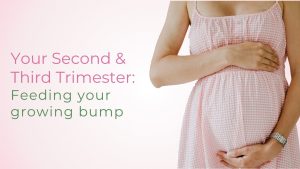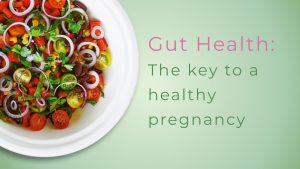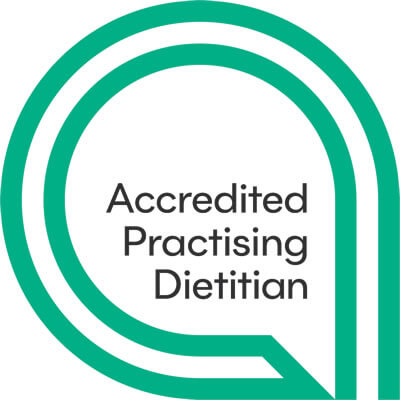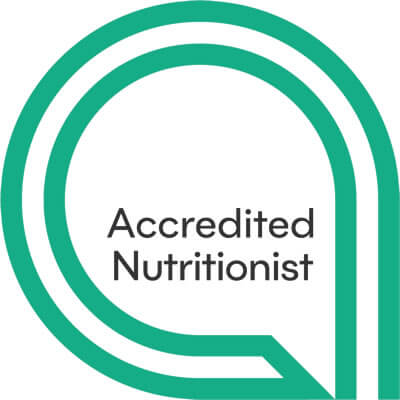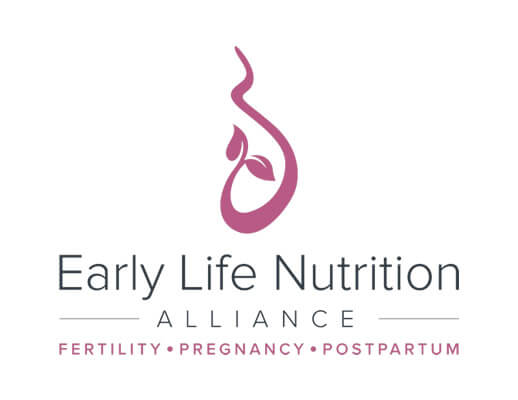Being pregnant comes with a lot of excitement, but also a lot of well-meaning, yet often inaccurate, nutritional advice. Each trimester has its own unique requirements and challenges and it's easy to get confused and overwhelmed.
The first trimester can be a mix of emotions, hormonal swings and physical symptoms that make you feel a bit like you are on a rollercoaster. One minute you're over the moon about the pregnancy, and the next, you're trying to find ways to deal with morning sickness and fatigue.
As a dietitian who specialises in prenatal nutrition, I've seen it all and although you may not always feel like you can stomach food, nutrition in the first trimester of pregnancy can make a huge difference to not only improve how you are feeling but to support the growth and development of the little person inside you. In this blog, we’ll discuss some simple strategies to support your nutrition while hopefully minimising pregnancy side effects during the first 3 months.
Laying the Foundations for a Healthy Pregnancy
In the first trimester, while the phrase ‘eating for two’ starts to become relevant, your baby is still very little and the actual amount that you need to eat to meet your needs remains the same. Recent studies highlight the importance of good nutrition, especially getting enough vitamins and minerals, for women before and during pregnancy, as this lays the foundations for a healthy pregnancy.
The aim is to focus on quality rather than quantity, making every mouthful count, especially if you are struggling to find foods that you can easily stomach. So, let's chat about how to make those food choices count. Whether it's finding the best way to combat morning sickness or understanding which nutrients are non-negotiable at this stage for your baby’s development. I'm here to guide you through it. Remember, this journey is as much about you as it is about your baby!
Understanding the First Trimester
The first trimester is the beginning of an extraordinary period where your body shifts into the nurturing mode, initiating a series of physical changes. This stage is characterised by a significant hormonal surge, including increases in oestrogen, progesterone, and Human chorionic gonadotropin, which play key roles in adjusting your body to accommodate and nourish your baby. These hormonal shifts can lead to nausea, frequent urination, constipation, and changes in breast size and sensitivity. Nausea and food aversions during the first trimester can make it tricky to stick to your usual food choices and intake—so it becomes more about finding foods that nourish yet sit well with your changing body.
Remarkably, by the end of the first trimester, your baby will have developed all of their organs and be approximately the size of a lime, reflecting the extensive work your body is doing.
Key Nutrients and Foods for the First Trimester
During the first trimester, your baby’s neural tube is developing which will evolve into the brain, spinal cord and central nervous system so the nutrients that matter in this first stage are those that support this development. These include folate, choline, iron and iodine.
Folate
Folate or vitamin B9 plays an essential role for healthy cell division and DNA synthesis. The increased requirements for folate during pregnancy are associated with the rapid rate of maternal and foetal cellular growth and development. Inadequate amounts of folate during pregnancy are associated with the development of neural tube defects, preeclampsia, preterm delivery, and small-for-gestational-age (SGA).
In order to meet the increased requirements in pregnancy to reduce the risk of associated complications, a combination of folate rich foods and a prenatal supplement which provides adequate amounts of folic acid in the inactive and active forms is recommended.
Foods that are high in folate include dark green leafy vegetables, oranges, strawberries, wholegrains, beans, nuts, cauliflower, and beetroots.
The synthetic form of folate is folic acid and a prenatal supplement with at least 400 mcg should be taken throughout pregnancy. During the first trimester, however these requirements may be far greater as many women are either unable to absorb folic acid optimally or have increased risk of neural tube defects so will require higher doses as well as a different form of folic acid to optimise absorption.
Vitamin B12
Vitamin B12 is necessary to ensure adequate folate is available for DNA synthesis and cell replication. Vitamin B12 deficiency is associated with adverse outcomes for mum and baby, including spontaneous abortions, preeclampsia, low birth weight, neural tube defects, and delayed nerve development.
Foods rich in vitamin B12 are mostly animal products like meat, eggs, dairy, and fish but also nutritional yeast and certain fortified cereals.
Ensuring adequate B12 from food and supplementation is essential. Those at risk for deficiency are women with coeliac disease, inflammatory bowel disease and diabetes or who follow a vegetarian and vegan eating pattern. High doses of folic acid supplementation and certain medication can also interfere with Vitamin B12 absorption, warranting a more targeted supplementation plan.
Iron
Iron plays a crucial role in cognitive and behavioural development of your baby. Low iron levels in early pregnancy have been linked to premature birth and low birth weight. It has also been associated with reducing risk of postpartum depression. During the first trimester, your requirements remain relatively stable and are less than later in pregnancy. As your pregnancy progresses, your blood volume expands and your baby’s growth increases, iron becomes more critical.
Iron deficiency is a significant global health problem, with approximately 1 in 4 pregnant women affected worldwide. In Australia some studies report numbers as high as 1 in 5 pregnant women are iron deficient.
Knowing your iron status is essential. As your requirements increase exponentially in your 2nd and 3rd trimester, it’s recommended to optimise your iron levels before falling pregnant where possible.
Foods high in iron include lean red meat, chicken, eggs, tofu, legumes and dark green leafy vegetables. Pairing your iron rich meals with vitamin C rich foods helps to improve the iron absorption.
Understanding your iron status early in pregnancy will ensure you optimise your intake through food and targeted supplementation to meet your increased requirements. Iron supplements are notoriously associated with digestive side effects like nausea and constipation. Early in your pregnancy when you may already be experiencing pregnancy-related nausea and constipation, this may deter you from taking any iron at all. For this reason, it’s recommended you consult with a specialised Prenatal dietitian to find the correct iron formulation and offer you individualised support to maximise iron intake and absorption while minimising any side effects.
Choline
Choline is a vitamin-like nutrient that is required in cell membrane and neuro transmittor synthesis. It is critical in early pregnancy for embryo development, in particular brain development. Low levels of choline have been associated with increased risk for neural tube defects independent of folate intake.
Choline is predominantly found in animal products like eggs, beef and pork. To meet the increased needs in pregnancy, supplementation in combination with food is essential.
A number of prenatal supplements don’t contain choline in adequate amounts or at all. A prenatal dietitian will guide you to understand which prenatal supplement is right for you.
Iodine
Iodine maintains the normal functioning of the thyroid hormone and plays a role in regulating bub’s metabolism. It is essential for brain and nervous system development and requirements increase during the first trimester.
The best food sources of iodine include seafood, fish, kelp, seaweed and iodised salt. Smaller amounts are found in dairy foods, eggs and some plant foods if they are grown in iodine-rich soils. There are so many conflicting messages around salt with many salts, like pink himalayan salt, recommended for unsubstantiated health benefits. Many of these ‘special’ salts are not iodised. In a world where iodine soil levels vary greatly and inadequate fish intake is common, salt may be the only reliable source of iodine for many of us.
Again, your prenatal supplement needs to provide you with adequate amounts of iodine to meet your increased needs during the first trimester.
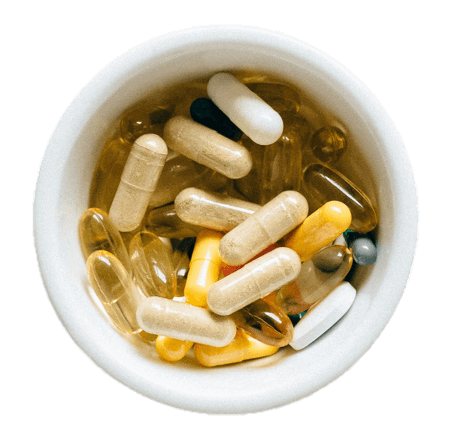
Struggling to find prenatal supplements that are just right for you?
Navigating prenatal supplements can be overwhelming. Simple Steps Nutrition is here to guide you in choosing the perfect supplements for you and where you are on your pregnancy journey.
Express Prenatal Supplement Consultation 30-minute virtual session
30-minute virtual session
Dealing with Common First Trimester Challenges
Navigating the first trimester's common hurdles—like morning sickness, food aversions, sudden cravings and fatigue —calls for a blend of smart strategies and gentle adjustments.
Here are 5 of my most important simple steps to help you during this time:
- Embrace small, regular mini meals spread out through the day to keep nausea at bay and improve your energy levels.
- Choose plain, dry and crunchy carbs - greasy, spicy, or heavily seasoned foods can trigger nausea. Foods like grainy crackers, rice cakes, corn thins and wholemeal toast are easy to digest and can help particularly first thing in the morning.
- Add some protein - This can improve nausea and stabilise blood glucose. Foods like cheese, natural peanut butter or baked beans with your grainy crackers or toast.
- Avoid strong odours - cold/ room temperature food may be better tolerated. Keep the house well-ventilated and this may be an ideal opportunity to get your partner to prepare some meals to keep you out of the kitchen
- Staying hydrated - Sip water, diluted juice, caffeine-free tea, ginger ale or ginger-infused water or tea ideally between meals. Cold or carbonated drinks can provide relief.
What can you do to tick the nutritional boxes at the beginning of your pregnancy?
In a perfect world, we would recommend getting blood tests for key nutrients 3 months before you fall pregnant to understand your baseline levels, identify any nutrient deficiencies and address shortfalls before you fall pregnant.
In reality this is not always possible so my advice is to request a full blood test as soon as you know you are pregnant to check your iron, vitamin B12, folate and vitamin D levels. This will enable you to seek the right support and guidance to improve any nutrient gaps early in your pregnancy and adjust as needed throughout the 9 month journey.
Remember pregnancy introduces a wide range of emotional and physical changes. Taking good care of yourself, including your nutrition can smooth the path for the months ahead. Let Simple Steps Nutrition help you on your Journey through Pregnancy with personalised guidance and plans to ensure you navigate this critical time with confidence.


